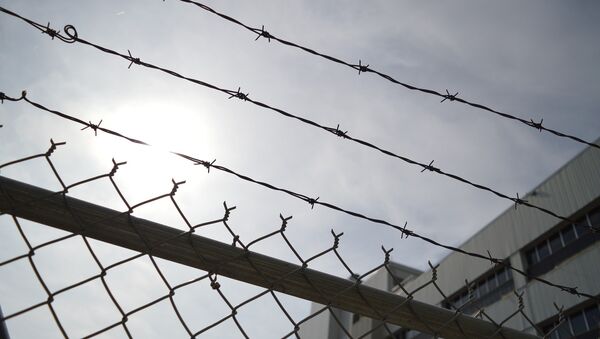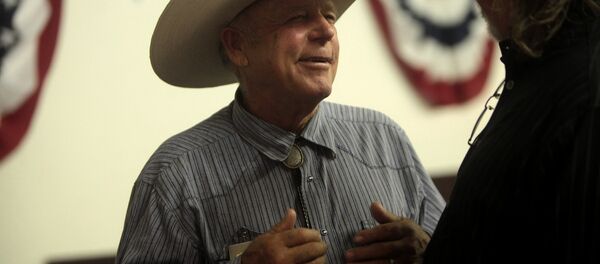On Monday, a motion to release, pending his trial was heard by US Magistrate Judge Cam Ferenbach, and was denied due to the defendant’s lack of belief in the legitimacy of the federal government. Ferenbach stated that the prosecution made a strong case that Bundy would likely ignore court orders and potentially take up arms again if federal officers attempted to retrieve him.
"It's one thing to take a position. It's another thing to take up arms," Ferenbach said at the hearing.
Prosecutors argued that while Bundy was not armed himself, he wielded a great deal of influence over those who were, and encouraged the militia members to keep control of a specific area during a tense moment in the standoff, when law enforcement was outgunned.
"I just can't get away from the underlying fact that he directed supporters to take up the high ground," Ferenbach said. "He's a danger to the community. Specifically, to BLM employees."
Bundy, who has no previous criminal history, is a father of six and lives with his wife in Utah. He owns a construction company and is a licensed pilot who was working on his bachelor’s degree in aviation administration.
Bundy’s defense team argued that he has been critical of his family’s actions, including during the more recent standoff in Burns, Oregon. They also claimed that he is being misrepresented, and acted as more of a peace officer, who did not himself carry a weapon.
The motion for release also noted that Bundy worked with the BLM in 2013 during a wildfire in Utah, allowing them to fill their helicopters with water on his land.
After the judge read her ruling, several of Bundy’s family members protested, accusing her of preparing her ruling before the hearing was held.




